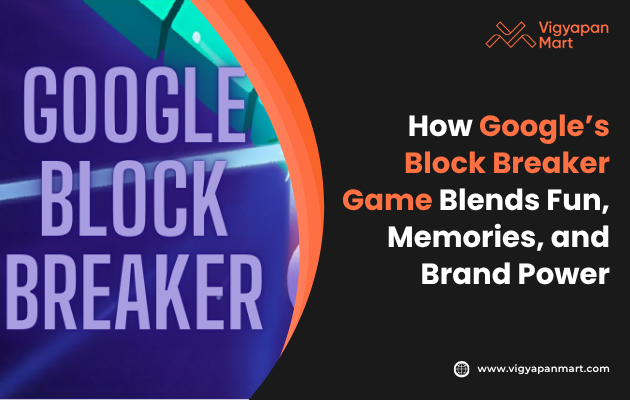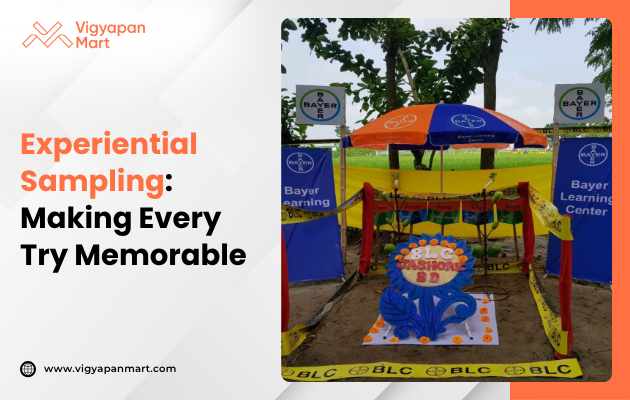How Is Experiential Marketing for Gen Z

Experiential marketing is not a new term in the business world. But when it comes to Gen-Z, things never come easy. Experiential marketing is no exception.
Gen-Z is very special because it has seen the technology grow from a telephone to a smartwatch. They are very familiar with technologies such as Social Media, AR, VR, and Apps etc. So how is experiential marketing going to be for Gen-Z kids?
Understanding Experiential Marketing for Gen Z
Experiential marketing has emerged as a powerful strategy to engage consumers. Notably, this heavily resonates with the younger generation who are more into experiences and living life. Gen-Z are people born between the mid-1990s and early 2010s. They are native to digital technologies and digital social consciousness. Moreover, they highly prefer authentic experiences more than sales pitch. As brands strive to get Gen-Z, understanding their preferences and nuances will make a difference in today’s time.
What’s Special in the Essence of Experiential Marketing?
Experiential marketing focuses on creating memorable experiences that engage consumers personally. Unlike traditional marketing, which often relies on the passive consumption of advertisements, experiential marketing invites consumers to participate actively.
Notably, Gen-Z also wants authenticity over flashy ads. So this approach automatically forges meaningful connections with them. Brands that successfully implement experiential marketing can win their loyalty and trust easily.
Key Characteristics of Gen Z
1. Digital Natives
Gen Z has grown up with technology so they are very familiar with navigating digital spaces. They prefer video content over static images or text and often seek out brands on platforms like TikTok and YouTube for authentic reviews and experiences.
2. Value-Driven Consumers
This generation prioritizes brands that demonstrate social responsibility and sustainability. They support companies that align with their values, making it essential for brands to communicate their missions.
3. Desire for Authenticity
Gen Z is skeptical of traditional advertising methods. They trust peer recommendations and user-generated content more than polished brand messages. A significant 82% of Gen-Z consumers feel more connected to brands that feature real customers in their promotions.
Why does Experiential Marketing Resonate with Gen Z?
Experiential marketing resonates with Gen Z for several reasons:
- Experiences allow brands to showcase their values in real time, fostering trust and loyalty.
- Events create opportunities for social interaction among peers, reinforcing a sense of belonging.
- People love to participate in engaging experiences and they are likely to remember and share, especially on social media platforms.
Successful Experiential Marketing Strategies
To effectively engage Gen Z through experiential marketing, brands must consider several strategies:
1. Leverage User-Generated Content (UGC)
Encouraging customers to share their experiences can create a sense of community around a brand.
For Example-
Coca-Cola’s “Share a Coke” campaign invited consumers to find bottles with their names on them and share photos online. This increased brand visibility but also fostered personal connections among consumers.
2. Create Interactive Experiences
Gen Z loves engaging with brands in interactive ways. Brands like Nike have successfully utilized augmented reality (AR) in their campaigns. They allow users to try on shoes virtually through their apps. This not only enhances the shopping experience but also creates a memorable interaction with the brand.
3. Incorporate Technology
Augmented reality (AR) and Virtual reality (VR) can enhance the experiential aspect of any brand. For example-
- IKEA's AR app allows customers to visualize furniture in their homes before purchasing.
- Lenskart allows users to try spectacles before purchasing them on their website and app.
4. Create Shareable Moments
Instagrammable experiences encourage consumers to share products, services, or real experiences. Brands like Coca-Cola have effectively used this strategy by creating pop-up events that invite users to take photos and share them online.
5. Focus on Sustainability
Gen Z is very concerned about environmental issues. They want to keep the environment safe for the future. So they choose brands that are committed to such actions.
For example- Patagonia has built its identity around sustainability and engages consumers through experiential campaigns emphasizing eco-friendliness. Some of their campaigns are
- Beach clean-ups or
- Sustainable fashion workshops.
6. Build Community Connections
Creating events that build community interaction can enhance brand loyalty.
For example-Nike organizes community-focused events that encourage local athletes to participate in sports activities while promoting the brand’s products organically.
Overlooked Facts about Gen Z's Preferences
While many marketers are aware of Gen Z's digital habits, some crucial aspects are often overlooked:
- Short Attention Spans: With an average attention span of just eight seconds, experiential marketing must be quick and engaging to capture interest.
- Desire for Personalization: Personalized experiences can significantly impact engagement levels. Brands should consider tailoring their campaigns to suit their specific audiences.
- Importance of Inclusivity: Gen Z values diversity and representation. Brands should ensure their campaigns reflect these ideals to resonate authentically.
Real-Life Examples of Successful Experiential Marketing
Several brands have successfully implemented experiential marketing strategies targeting Gen-Z:
- Known for its extreme sports events, Red Bull creates high-energy experiences that resonate with adventurous young consumers.
- The streaming giant ‘Netflix’ has hosted immersive pop-up experiences based on popular shows like "Stranger Things," allowing fans to step into the world of their favorite series.
- The coffee chain Starbucks has embraced experiential marketing through unique store designs and seasonal events. These events encourage customer interaction and improve their online presence.
Conclusion
Gen-Z is built differently. They are tired of flashy ads and don’t want to engage with brands that don’t value personalization and authenticity. Gen-Z is shaping the market like never before. This becomes more important as Gen-Z’s are very familiar with the technology and use it for almost everything. Experiential marketing offers a unique opportunity to engage this audience. This creates memorable experiences for audiences and encourages them to post them on social media. Brands can leverage this to create user-generated content, build community, and foster long-term connections.
Are you looking for an expert experiential marketing agency? Connect with Vigyapan Mart today!









